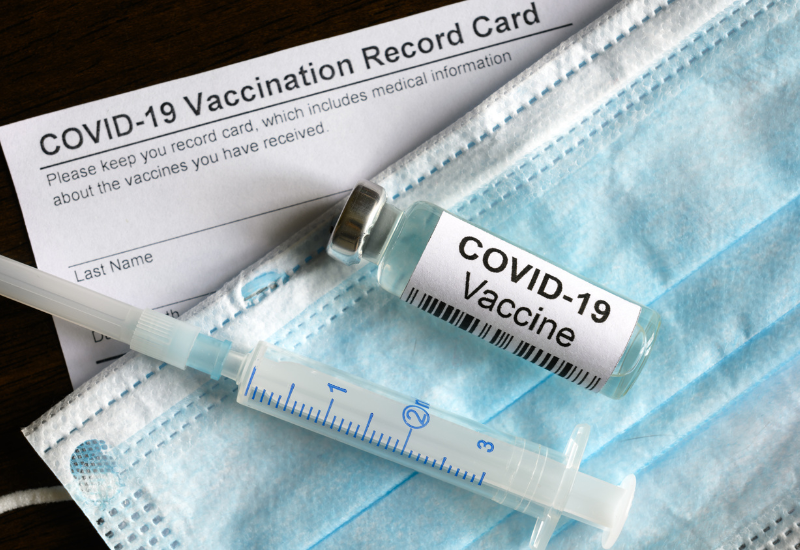Everything You Need to Know About the Vaccine Mandate
- September 29, 2021
- Posted by: CKH Group
- Categories: COVID-19 Information, Current Events

COVID-19 Vaccine Mandates: A Look Back and the Current Landscape
During the height of the COVID-19 pandemic, vaccine mandates became a significant factor affecting businesses nationwide. In 2021, regulations were introduced that required many employees to get vaccinated or undergo regular testing, impacting companies of all sizes, healthcare providers, and federal agencies.
These mandates brought about rapid changes, challenges, and adjustments for businesses trying to navigate the evolving landscape.
Recap of the Vaccine Mandates and Their Impact on Businesses
In September 2021, new regulations directed by the Occupational Safety and Health Administration (OSHA) required companies with 100 or more employees to implement mandatory vaccination or weekly testing. This affected nearly 80 million private-sector workers, adding compliance burdens such as recordkeeping, testing arrangements, and managing exemptions.
Non-compliance came with hefty penalties, with fines reaching up to $13,653 for standard violations and up to $136,532 for repeated offenses.
Additionally, healthcare facilities accepting Medicare and Medicaid payments were required to ensure their staff were vaccinated, enforced by the Centers for Medicare & Medicaid Services (CMS). Businesses found themselves juggling new requirements, employee concerns, and operational disruptions.
Key Challenges Faced by Businesses
- Operational Adjustments:
Businesses had to quickly adapt to the mandates by implementing internal processes to track vaccination status and manage testing protocols. For many, this included revising HR policies, investing in new software for compliance tracking, and reallocating resources to handle the additional workload. - Employee Concerns and Compliance:
Navigating employee concerns about the mandates was a major hurdle. Companies faced pushback from staff who were hesitant about vaccinations or the required testing, leading to internal conflicts and potential staffing shortages. This put additional pressure on businesses already struggling with pandemic-related challenges. - Legal and Financial Implications:
The mandates introduced legal complexities, as companies needed to ensure compliance with state and federal regulations, which sometimes conflicted. Non-compliance fines added financial strain, particularly for smaller businesses. Many organizations sought legal advice to navigate these uncharted waters. - Supply Chain and Industry-Specific Challenges:
Certain industries, such as healthcare and logistics, faced unique challenges due to their critical roles during the pandemic. For healthcare providers, maintaining a fully vaccinated workforce was essential to continue operations, while logistics companies had to balance compliance with the need to keep supply chains moving.
The State of Vaccine Mandates in 2024
As we move through 2024, the landscape of vaccine mandates has evolved, with many of the strict requirements lifted or modified. However, some remnants of these mandates still affect certain industries and locations:
- Healthcare Settings:
Vaccine mandates remain most prevalent in healthcare environments, where protecting vulnerable populations is paramount. Many hospitals and clinics still require vaccinations for staff, though policies have adapted to include testing or other alternatives in some cases. - State-Specific Regulations:
The response to vaccine mandates varies significantly by state. Some states maintain requirements for certain sectors, such as healthcare or education, while others have banned mandates altogether. This variation requires businesses operating in multiple states to stay informed about the differing regulations and adjust accordingly. - Federal Recommendations:
While broad federal mandates have largely been rolled back, federal guidance still encourages vaccinations as a key measure to prevent illness. Businesses are advised to keep updated on public health recommendations to protect their employees and customers.
Lessons Learned and Moving Forward
For businesses impacted by the vaccine mandates, the experience highlighted the importance of adaptability, clear communication, and robust compliance strategies. Companies have become more resilient, learning to quickly respond to regulatory changes and manage employee relations in challenging circumstances.
As we look ahead, the emphasis has shifted toward voluntary vaccination efforts, health education, and preparedness for potential future public health requirements. Understanding the current state of mandates is essential for businesses to navigate this new normal.
Whether your business is dealing with state-specific requirements or simply looking to keep your workplace safe, staying informed and prepared is key.
If you have any questions or need professional assistance, CKH Group is here to help. Contact us today for a free consultation or you can contact us at 1-770-495-9077 or email us at [email protected]
The above article only intends to provide general financial information and is based on open source facts, it is not designed to provide specific advice or recommendations for any individual. It does not give personal tax, financial, or other business and professional advice. Before taking any form of action, you should consult a financial professional who understands your particular situation.
CKH Group will not be held liable for any harm / errors / claims arising from the articles. Whilst every effort has been taken to ensure the accuracy of the contents we will not be held accountable for any changes that are beyond our control.
